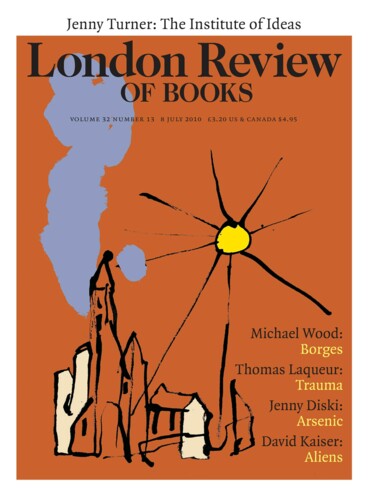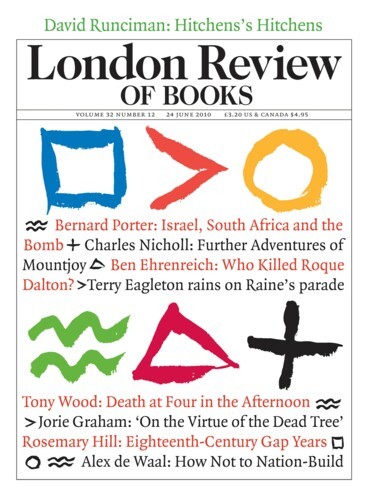Yesterday I voted in my first Swedish election – not for the parliament, as I’m only a resident, not a citizen, but for my Kommun, and for the local health authority. It was held in our neighbourhood school. There was a stall outside selling coffee, sandwiches and buns, staffed by the schoolchildren and their parents. You get the same sort of thing if you deliver your tax return in person to Skattehuset on the deadline; almost a carnival atmosphere, with hot dog stalls and the like. People were sitting around in the autumn sun discussing how they had voted; I don’t ever remember seeing that in England. This was social citizenship on display. Maybe it’s why Sweden regularly gets turnouts of over 80 per cent (around 83 per cent this time).
Bernard Porter
Bernard Porter’s recent books include Imperial Britain: What the Empire Wasn’t and Empire Ways. He lives in Stockholm.
If you’ve had nothing but the British (or, I imagine, American) press to go by these last few weeks, you can be forgiven for being hardly aware that a general election is brewing in Sweden. Perhaps the newspapers don’t think it’s important; or that an election there can make much difference to the social democratic consensus that has dominated the country, virtuously but boringly, for years. Visiting the various party booths on Sergelstorg in the centre of Stockholm – almost identical little kiosks (can you get them from IKEA?) staffed by clean young political clones – it is difficult to think of it in terms of a contest at all. Posters carry portraits of smiling party leaders with anodyne slogans against pastel backgrounds. The television coverage is ubiquitous, but polite and low-key.
‘We’re Not Jittery’: Monitoring Morale
Bernard Porter, 8 July 2010
When Chamberlain took the British to war in September 1939, he had little idea of how they would respond. Very few of those in authority did. In their introduction to this important collection of documents, Paul Addison and Jeremy Crang point out the ‘gulf of mutual incomprehension’ that separated ministers and civil servants from ‘the broad mass of the British...
It is difficult to know how to take recent reports that Niall Ferguson has been recruited to overhaul, or to help overhaul, the history syllabus in schools. For a start it seems an odd way for the new education secretary, Michael Gove, to announce it, from the audience at a talk given by Ferguson at the Hay Literary Festival last month. It clearly took Ferguson by surprise: ‘I am looking forward to your call.’ It sounds as if it was a spur-of-the-moment idea of Gove’s, taken without consultation, which was surely improper. Ferguson’s enthusiasm for the idea is hardly less so, bearing in mind his lack of experience in this field.
Pariahs Can’t Be Choosers: Israel, South Africa and the Bomb
Bernard Porter, 24 June 2010
Each found erstwhile allies and trading partners dropping away – Israel even lost US support for a while in the 1970s – except South Africa in the case of Israel, and vice versa. ‘When it comes to choosing our friends,’ the president of the Israeli-South Africa Chamber of Commerce said in 1983, ‘we haven’t got too many friends we can afford to antagonise.’ Pariahs can’t be choosers. That seems to have been the fundamental basis of the relationship between them.
Pieces about Bernard Porter in the LRB
Lumpers v. Splitters: How to Build an Empire
Ferdinand Mount, 31 March 2016
‘Those who make many species are the “splitters” and those who make few are the “lumpers”,’ Charles Darwin wrote in 1857 to his friend, the great botanist...
Read anywhere with the London Review of Books app, available now from the App Store for Apple devices, Google Play for Android devices and Amazon for your Kindle Fire.
Sign up to our newsletter
For highlights from the latest issue, our archive and the blog, as well as news, events and exclusive promotions.



